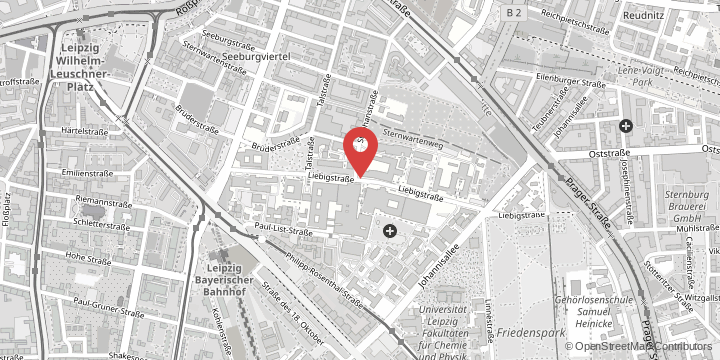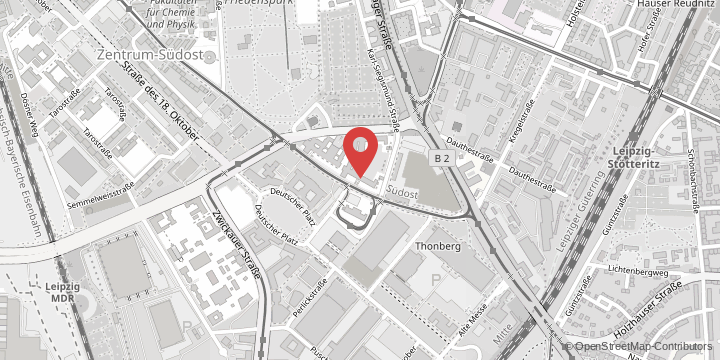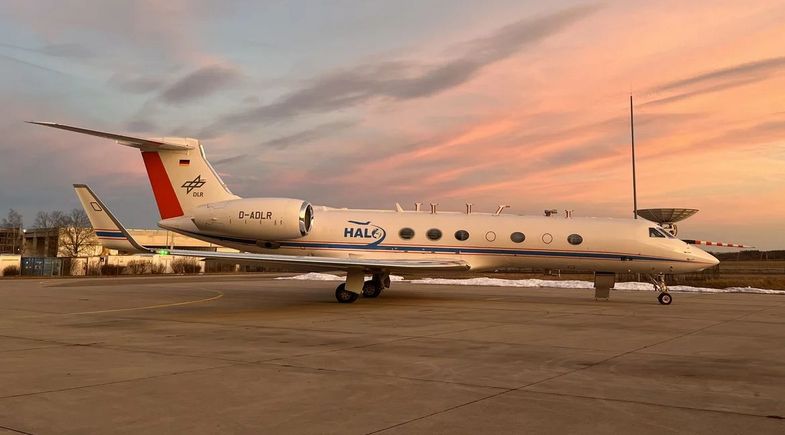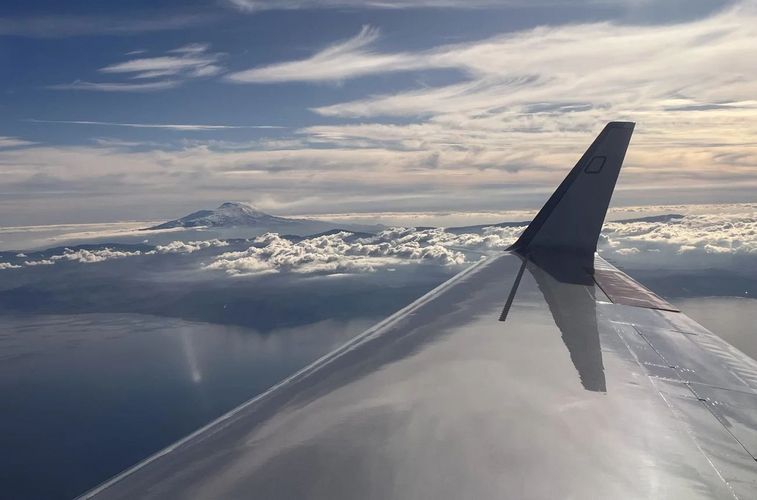The CAFE-PACIFIC mission, coordinated by the Max Planck Institute for Chemistry and Goethe University Frankfurt, investigates photochemical processes and aerosol formation in the tropical troposphere using the high-altitude aircraft HALO. The research aircraft has been equipped with highly sensitive mass spectrometric and optical instruments. The project team also includes researchers from the Karlsruhe Institute of Technology (KIT), Forschungszentrum Jülich (FZJ), the Leibniz Institute for Tropospheric Research (TROPOS), and the German Aerospace Center (DLR), which is also the operator of the HALO measurement aircraft. The scientists will use the measuring instruments to characterize atmospheric oxidation mechanisms and record the formation and growth of aerosol particles in the upper troposphere. These tasks will involve measuring a large variety of gaseous chemical compounds such as sulfur and nitrogen oxides, volatile organic compounds (VOCs), carbon monoxide, and hydroxyl radicals, as well as the number, size, and composition of aerosol particles.
Researchers from TROPOS operate two measuring devices on these flights: the FASD system (Fast Aerosol Size Distribution) and the CCN rack contain a condensation particle counter (CPC), an ultra-high sensitivity aerosol spectrometer (UHSAS) and an optical particle size spectrometer. This allows the size distribution of aerosol particles in the range between 2 and 5000 nanometres to be recorded, including the size range from which clouds are formed. At the same time, cloud condensation nuclei and soot particles are measured. "The measurement data gives us an insight into the formation of new particles, which is also one of the most important issues for us in the campaign ," reports Prof Mira Pöhlker from TROPOS and Leipzig University, who previously conducted research at the Max Planck Institute for Chemistry and was also involved in the previous CAFE expeditions in tropical Africa and Brazil. "By comparing three tropical regions on very different continents, I hope to gain an insight into the various processes that change our aerosols and thus also our clouds and climate," says Mira Pöhlker. She will be on site in Cairns in February. Her colleague Konstantinos Barmpounis will be in charge of the devices on the aircraft from the beginning to the end of the campaign.
The science team is planning a total of around 120 flight hours by the end of February, which means 15 measurement flights with take-offs and landings from Cairns Airport in north-east Australia. Flights are also planned at dawn and dusk, as well as at night. During each flight, four researchers will be on board to monitor the 15 different measuring instruments and maintain contact with their colleagues on the ground. The return flight of the measurement aircraft to Oberpfaffenhofen is scheduled for February 28, 2024.
The three CAFE expeditions
CAFE-AFRICA, the first of the three research expeditions, took place in summer 2018. The aim of the expedition was to investigate the influence of emissions from biomass combustion in Africa on the atmosphere over the tropical and subtropical Atlantic from the Cape Verde island of Sal.
The second expedition, CAFE-BRAZIL, took place in December 2022 and January 2023 over the Amazon region around Manaus. The researchers spent 60 days collecting data on the chemical processes in the largely clean atmosphere above the Amazon rainforest in Brazil.
The third and final project in the series is CAFE-PACIFIC. It concentrates on the region around Indonesia and northern Australia - the center of Indo-Pacific Warm Pool. In the region at the equator from Madagascar in the west of the Indian Ocean via Indonesia and Papua New Guinea to French Polynesia in the Pacific, sea surface temperatures are above 28 °C all year round. Climate change is causing this region to expand further. As a result of the high water temperatures that prevail here, the high-reaching cloud convection in this region is the strongest in the world. This in turn causes strong heat transportation from the surface of the sea into the tropopause region (approx. 12 – 16 km), which is why the Indo-Pacific Warm Pool is sometimes referred to as the Earth's heat engine. In contrast to the Amazon region, where rainforest emissions dominate the chemical processes in the atmosphere, the researchers expect the dominant influence of unpolluted maritime air over the tropical Pacific. The comparison between the effects of convection over the Amazon (green ocean) and over the Indo-Pacific Warm Pool (blue ocean) will contribute to a better understanding of atmospheric processes.
Aim of the CAFE research expeditions
"In the course of the CAFE missions, we have collected data under pristine conditions in the Amazon region and in regions where a lot of biomass is burned. We will compare and combine these results with the data that we will now measure over the Pacific. We expect to gain fundamental insights into natural tropospheric chemistry and aerosol processes in terrestrial and marine environments in the tropics," explains Jos Lelieveld, Director of the Atmospheric Chemistry Department at the Max Planck Institute for Chemistry and coordinator of the CAFE-PACIFIC research trip.
All measurements also serve as the basis for computer models that depict the chemical processes and atmospheric feedback mechanisms of the Earth system and that are intended to predict future climate developments.
- HALO
The research aircraft HALO (High Altitude and Long Range Research Aircraft) is a joint initiative of German environmental and climate research institutions. HALO is funded by grants from the Federal Ministry of Education and Research (BMBF), the German Research Foundation (DFG), the Helmholtz Association, the Max Planck Society (MPG), the Leibniz Association, the Free State of Bavaria, the Karlsruhe Institute of Technology (KIT), the Research Centre Jülich (FZJ) and the German Aerospace Centre (DLR). Owner and operator of the aircraft is the German Aerospace Center.
































































